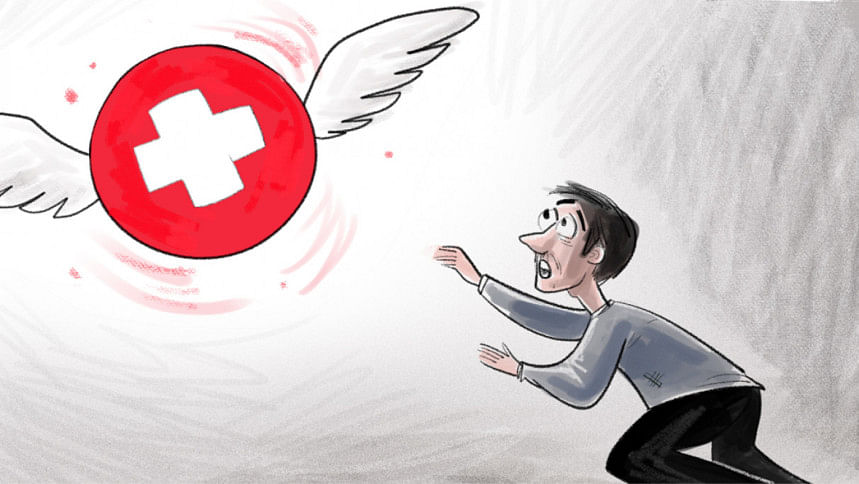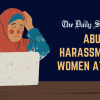The hands that build the world must be protected

When health fails, hope fades. Whether in a city factory or on a remote river island, when the body gives way, when pain becomes routine and healing remains out of reach, everything else collapses.
Livelihood, learning, dignity, even the will to dream—this is the daily truth for millions of workers around the world. Sometimes it is geography, people surviving on shifting chars or cyclone-battered coastlines where no doctor arrives. Sometimes it is poverty, when a ready-made garment (RMG) worker must choose between medicine and feeding her family. Sometimes it is deeper still, a systemic absence of nutrition, safety, rest, and knowledge. Often, it is all of the above, together, compounding each other into crisis. Without health, labour cannot thrive. Without labour, societies cannot stand.
Health is not a privilege. It is the first right of every worker. It is the foundation upon which livelihoods are built.
When malnutrition, unsafe working conditions, and untreated illnesses persist, industries falter, communities suffer, and futures collapse. Maternal health is especially critical, for it is the worker's body that builds not only today's economy, but tomorrow's generations. In climate frontline regions, where cyclones strike and salinity poisons the land, poverty deepens and workers' bodies bear the heaviest toll. To protect labour, we must first protect life, through nutrition, sanitation, vaccination, safety, and dignity from birth onward.
Education is also connected to health. A literate worker knows when a wound is dangerous, when rest is essential, when conditions are unjust. A young girl forced into early marriage is denied not only childhood, but the health and opportunity of a life fully lived. In communities where literacy is scarce, illness spreads faster, and accidents go untreated. Literacy enables hygiene, family planning, and safety awareness, the essentials for a resilient workforce.
Then comes design, often overlooked, yet deeply consequential.
A missing handrail on a stairwell can cripple a factory worker. Lack of sanitation spreads disease. Cramped, poorly ventilated workshops expose workers to chronic illness. From flood-resilient plinths to solar-powered villages, from safe workspaces to mobile health clinics, designing for human dignity is not a luxury. It is a necessity. Disaster preparedness, too, must be built into every system. Workers at the margins cannot afford poor solutions.
Friendship's journey began over 23 years ago in the chars of Bangladesh, where healthcare was not just absent, but unimaginable. We started with a single hospital ship, a small team, and no blueprint. Everyone did everything, from translating prescriptions to washing hospital sheets. We learnt by doing. The ship was a lifeline, but it was only the beginning.
May we build a future where no worker must sacrifice their body to earn their bread, and where every hand that builds the world is valued, protected, and honoured.
Satellite clinics followed. Then local women were trained as community medic-aides, bringing basic healthcare to the doorstep. Today, the system includes seven hospital ships, two land-based hospitals, over 750 clinics, and a network of 800 community medics, powered by mobile technology that ensures care even in the most remote huts.
Behind every number, there is a face: a farmer who can now till his land after cataract surgery; a young woman, once paralysed by preventable illness, now running her own small business; a child with a cleft palate now smiling at school.
These are not exceptions. They are the quiet revolutions that define real progress.
And this journey was never walked alone. Across the years, workers, volunteers, medical experts, donors, and community leaders joined hands. They saw not helplessness, but resilience. They came not to give charity, but to build solidarity.
Because ultimately, health is the thread. It runs through every right, every livelihood, every aspiration.
On this May Day, let us remember that the dignity of work begins with the dignity of the worker. And dignity begins with health—not as a luxury, not as a hope, but as a guarantee.
May we build a future where no worker must sacrifice their body to earn their bread, and where every hand that builds the world is valued, protected, and honoured.
Runa Khan is founder and executive director of Friendship.
Views expressed in this article are the author's own.
Follow The Daily Star Opinion on Facebook for the latest opinions, commentaries, and analyses by experts and professionals. To contribute your article or letter to The Daily Star Opinion, see our submission guidelines.

 For all latest news, follow The Daily Star's Google News channel.
For all latest news, follow The Daily Star's Google News channel. 









Comments